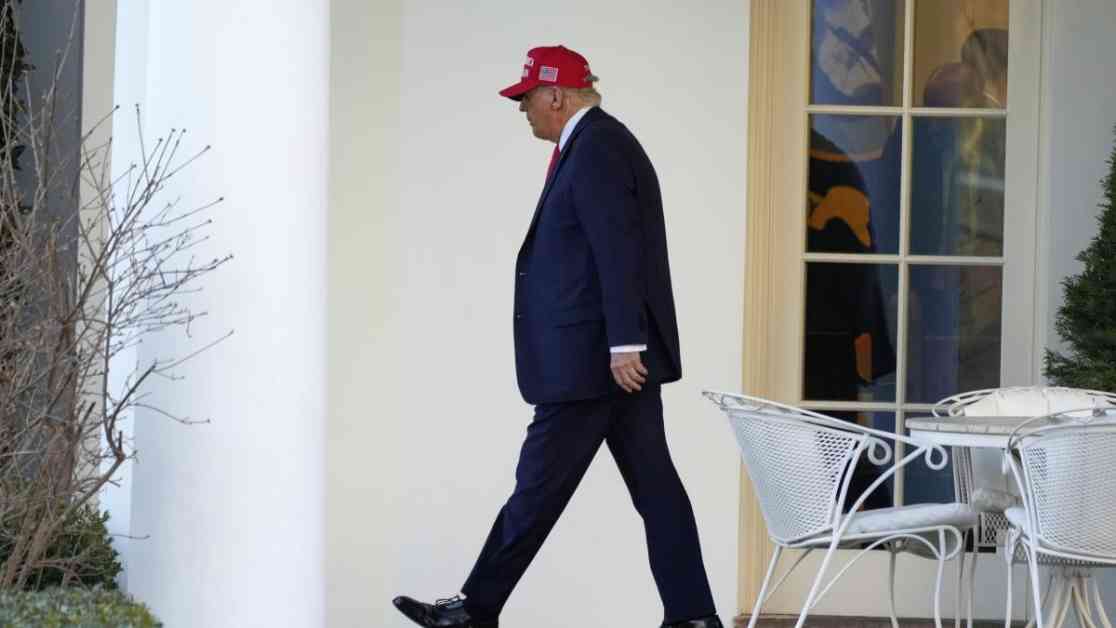In a recent turn of events, both a prestigious law firm and Columbia University have made the surprising decision to surrender to President Trump’s bullying tactics. This move, seen as a dangerous capitulation, raises concerns about emboldening his administration to continue such aggressive actions. On Thursday and Friday, the national law firm of Paul, Weiss, Rifkind, Wharton & Garrison LLP and Columbia University both succumbed to pressure from the Trump administration, sparking debates about the legality and repercussions of such compliance.
Unprecedented Legal Coercion
The primary reason behind Paul, Weiss being targeted by the Trump administration was the involvement of one of its former partners in the legal team that investigated Trump in a past business fraud case. Additionally, the firm represented clients suing Jan. 6, 2021, rioters. Trump’s executive order, which revoked security clearances, ended government contracts, and restricted access to government buildings for Paul, Weiss employees, was deemed as blatantly illegal retribution by legal experts. A federal judge previously described a similar order against Perkins Coie as an “extreme, unprecedented effort” with chilling effects on the legal profession.
Despite the ethical and legal concerns raised by such actions, Trump announced on Thursday that he would withdraw the executive order against Paul, Weiss in exchange for $40 million in legal services to support causes championed by the administration. This move has sparked fears of further shakedowns and targeting of law firms in the future. The capitulation of Paul, Weiss sets a concerning precedent for other institutions and legal entities that may face similar coercion tactics.
Questionable Federal Funding Cuts
In a parallel development, Columbia University also found itself capitulating to pressure from the Trump administration. The administration announced a $400 million cut in federal funds to Columbia, citing inaction in addressing harassment of Jewish students during pro-Palestinian protests. Legal experts have raised concerns about the legality of such funding cuts, noting that Title VI of the 1964 Civil Rights Act requires an express finding on record before any cut takes effect.
Moreover, the Department of Education’s guidelines on Title VI emphasize that universities cannot be forced to curb protected speech under the First Amendment. Columbia’s response to the pro-Palestinian demonstrations last spring, which was ultimately aggressive, contradicts claims of deliberate indifference. The Trump administration’s demands, including changes to admissions criteria and restricting student speech, could potentially infringe on academic freedom. By giving in to these demands, Columbia risks setting a dangerous precedent for other educational institutions facing similar challenges.
While the decision to capitulate may seem expedient in the short term, it raises larger questions about the erosion of democratic values in the face of intimidation tactics. Erwin Chemerinsky, the dean of the UC Berkeley Law School, emphasizes the importance of challenging unconstitutional acts to uphold the principles of democracy. As Trump continues to target institutions with his coercive tactics, the need for resistance and legal pushback becomes increasingly critical.
As the landscape of legal battles and institutional autonomy evolves, the actions of Paul, Weiss and Columbia serve as cautionary tales for other entities facing similar pressures. The delicate balance between compliance and resistance in the face of authoritarian tactics will shape the future of democracy in the United States. It is imperative that individuals and institutions stand up against illegal coercion to safeguard the foundations of a free and just society. The fight for democracy requires unwavering resolve and a commitment to upholding the rule of law in the face of adversity.














